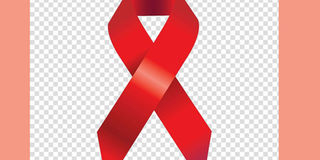Increase efforts against HIV/Aids

What you need to know:
The issue:
HIV prevalence
Our view:
The government should step up its effort to educate people about HIV/Aids and fight stigmatisation of people living with HIV/Aids.
Uganda joined the rest of the world yesterday to commemorate World Aids Day.
A lot of progress has been made in the fight against the HIV/Aids pandemic, with the national disease prevalence significantly reducing from 30 per cent in the 1980s to the current 5.7 per cent.
The government says Uganda is on course to achieving 90-90-90 goals. The Joint United Nations Programme on HIV and Aids 90-90-90 goals were launched at the International Aids Conference in 2014 in Melbourne, Australia, as part of global efforts to end the HIV/Aids pandemic by 2030.
Under the 90-90-90 goals strategy, by next year 90 per cent of all people living with HIV are expected to know their status, 90 per cent of all people diagnosed with HIV infection should have access to sustained antiretroviral therapy, and 90 per cent of all people receiving antiretroviral therapy should have viral suppression.
According to the Uganda Aids Commission, the country has achieved the last two targets while the first one stands at 89 per cent.
The government expects the country to have achieved the remaining one per cent to achieve the first target by the end of 2020.
According to the Uganda Aids Commission, 1.3m people were living with HIV/Aids by the close of 2018. The number of new HIV infections was 53,000. The percentage of people living with HIV/Aids among adults (15–49 years) was 5.7 per cent. And those on antiretroviral therapy was 1.2 million against government expenditure on purchase of ARV drugs at Shs160 billion.
We commend the government for the progress made thus far but urge it not to rest on its laurels.
The government should step up its effort to educate people about HIV/Aids and fight stigmatisation of people living with HIV/Aids. Artistes and other celebrities should be enlisted in the fight to rid Uganda of this scourge.
This is a tested and proven strategy. In the late 1980s, the late singer Philly Bongoley Lutaaya played a key role in the fight against HIV/Aids.
Other challenges such as shortage of funds should also be urgently addressed. Funding for HIV in Uganda is heavily donor-reliant, not guaranteed and unpredictable.
Donor funding also sometimes comes with conditions that are not in accordance with Uganda’s national goals.
The government should endeavour to wean itself off reliance on donor funding for the fight against HIV/Aids.
This can be achieved by increasing domestic resource mobilisation and reallocating funds from other less critical sectors.
Our commitment to you
We pledge:
• To be accurate and fair in all we do.
• To be respectful to all in our pursuit of the truth.
• To refuse to accept any compensation beyond that provided by Monitor Publications Ltd. for what we do in our news gathering and decision-making.
Further, we ask that we be informed whenever you feel that we have fallen short in our attempt to keep these commitments.
[email protected]


